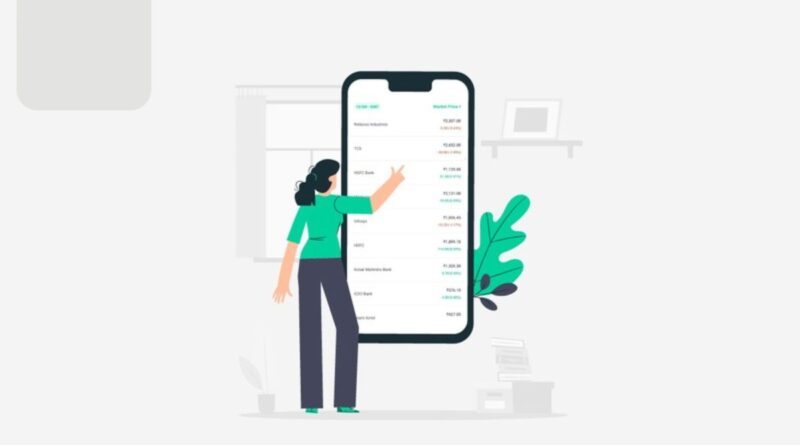How to Choose the Best Intraday Trading App
Choosing the right intraday trading app is crucial for anyone looking to dive into the world of stock trading. For beginners, the vast array of options can be overwhelming, making it difficult to find an app that meets their needs. An effective intraday trading app can enhance your trading experience, streamline your processes, and ultimately lead to better trading outcomes. This blog will break down the essential factors to consider when selecting an intraday trading app, focusing on features, usability, security, and support. By understanding these aspects, you can make an informed decision that suits your trading style and needs.
Key Features to Look For in Trading App
When choosing an intraday app, several key features can enhance your trading experience:
- User-Friendly Interface: A straightforward and intuitive design is crucial for beginners. Look for apps that allow easy navigation and quick access to essential functions like buying and selling stocks.
- Real-Time Data: Access to real-time market data is vital for intraday trading. Ensure the app provides live updates on stock prices, market trends, and other relevant information.
- Advanced Charting Tools: Good apps offer advanced charting tools that allow you to analyse stock performance visually. These tools help in making informed decisions based on historical data and trends.
- Order Types: The ability to place different types of orders (like limit orders, market orders, etc.) can provide flexibility in your trading strategy.
Cost and Fees
Understanding the costs associated with using a trading app is essential.
- Brokerage Fees: Many apps charge brokerage fees per trade. Look for apps that offer competitive rates or even zero brokerage options for certain trades.
- Additional Charges: Be aware of any hidden fees related to account maintenance or transaction costs. Carefully reading the fine print can help you avoid unexpected charges.
Security Measures
When choosing the best trading app, security should be your highest priority.
- Encryption: Ensure the app uses strong encryption methods to protect your personal and financial information.
- Two-Factor Authentication (2FA): This provides an additional layer of security by requiring a second form of verification when logging in or conducting transactions.
Customer Support
Reliable customer support can greatly enhance your trading experience.
- Availability: Check if the app offers 24/7 customer support through various channels like chat, email, or phone.
- Educational Resources: Many apps provide tutorials, webinars, or articles that can help beginners understand the intricacies of stock trading and futures and options trading.
Compatibility and Accessibility
Consider how accessible the app is:
- Device Compatibility: Ensure the app is compatible with your smartphone or tablet. Some apps may also have web versions for trading from a desktop.
- Performance: The app should perform smoothly without lagging during peak market hours when trades need to be executed swiftly.
Two-Factor Authentication (2FA)
Two-factor authentication adds an extra layer of security by requiring a second form of verification when logging in or making transactions. This may involve a code sent to your mobile device or using an authentication app. Activating 2FA greatly reduces the risk of unauthorised access.
Opening a Demat Account
To start trading, you will need to open Demat account:
- Choose a Broker: Select a broker that aligns with your needs based on fees, features, and support.
- Submit Required Documents: Typically, you will need proof of identity (like a passport or driving license), proof of address (utility bill or bank statement), and a PAN card.
- Complete KYC Verification: This process ensures compliance with regulations and usually involves submitting your documents online.
- Start Trading: Once your account is set up, you can fund it and begin trading using your chosen intraday app.
Testing the App
Before fully committing to an intraday trading app, consider testing it out:
- Demo Accounts: Some platforms offer demo accounts where you can practice trading without risking real money. This is an excellent way for beginners to get comfortable with the interface and features before diving in.
- User Reviews: Reading reviews from other users can provide insights into the app’s strengths and weaknesses. Look for feedback regarding reliability, ease of use, customer service quality, and overall satisfaction.
Conclusion
Choosing the best intraday stock trading apps involves considering various factors such as user interface, real-time data access, security measures, customer support, costs, compatibility, and available educational resources. By understanding these elements and ensuring you have an open Demat account ready for use, you can navigate the world of stock trading more confidently. Remember to explore different options before settling on an app that suits your specific needs in futures and options trading as well as general stock market activities.



